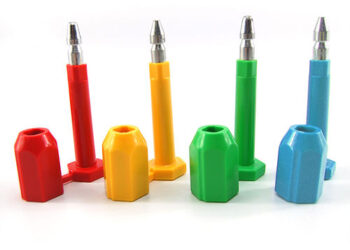In today’s global economy, the safe and secure transportation of goods is of paramount importance. The International Organization for Standardization (ISO) has established various standards to address different aspects of security and quality across industries. ISO 17712 is one such standard that focuses on the mechanical seals used in shipping containers. In Ecuador, ISO 17712 testing services play a crucial role in ensuring the integrity of cargo shipments, safeguarding against tampering, theft, and unauthorized access.
ISO 17712 Standard Overview:
ISO 17712 sets forth guidelines for the design, manufacturing, and testing of mechanical seals used on containers to deter theft and tampering. These seals provide a visible indication of any unauthorized access to containers during transit. The standard specifies three levels of security seals: “I” for indicative seals, “S” for security seals, and “H” for high-security seals. Each level corresponds to different levels of tamper resistance and security features.
Importance of ISO 17712 Testing Services:
Ecuador, as a hub for international trade and commerce, relies heavily on secure cargo shipments. The implementation of ISO 17712 standards and testing services ensures several essential benefits:
- Preventing Cargo Tampering: ISO 17712-compliant seals prevent unauthorized access to containers, reducing the risk of tampering, pilferage, and sabotage. This helps maintain the integrity of goods throughout the supply chain.
- Deterring Theft: Secure containers equipped with ISO 17712 seals act as a deterrent against theft. The visible evidence of tampering discourages potential thieves, thereby minimizing losses.
- Compliance and Regulations: Many international trade agreements and regulations require adherence to security standards like ISO 17712. Ensuring compliance enhances a country’s reputation as a reliable trade partner and promotes seamless cross-border movements.
- Risk Mitigation: By employing ISO 17712 testing services, businesses in Ecuador can mitigate the risks associated with cargo security breaches, minimizing financial losses and potential legal issues.
- Customer Confidence: ISO 17712-certified shipments provide customers with the confidence that their goods will arrive at their destinations intact and secure. This can lead to increased customer satisfaction and repeat business.
- Global Supply Chain Integration: Conforming to internationally recognized security standards like ISO 17712 facilitates Ecuador’s integration into the global supply chain, attracting foreign investment and fostering economic growth.
ISO 17712 Testing Process:
ISO 17712 testing services in Ecuador involve a comprehensive assessment of mechanical seals used on shipping containers. The process typically includes:
- Physical Inspection: Evaluating the physical characteristics of the seals, such as material, dimensions, and construction, to ensure they meet the standard’s specifications.
- Tamper Resistance: Testing the seals’ resistance to tampering through various methods, including manual attempts to break or compromise the seals.
- Strength and Durability: Assessing the seals’ ability to withstand environmental conditions, vibrations, and potential impact during transit.
- Authentication: Verifying the authenticity of seals to prevent the use of counterfeit or unauthorized seals.
- Certification: Upon successful testing, the containers receive ISO 17712 certification, indicating their compliance with international security standards.
Collaboration and Future Outlook:
To strengthen cargo security further, collaboration among government authorities, regulatory bodies, testing laboratories, and businesses is crucial. Continuous research and development efforts are essential to stay ahead of evolving tampering techniques and security challenges. By investing in ISO 17712 testing services and adhering to international security standards, Ecuador can enhance its reputation as a secure and reliable trade partner, contributing to its economic prosperity and growth in the global marketplace.











